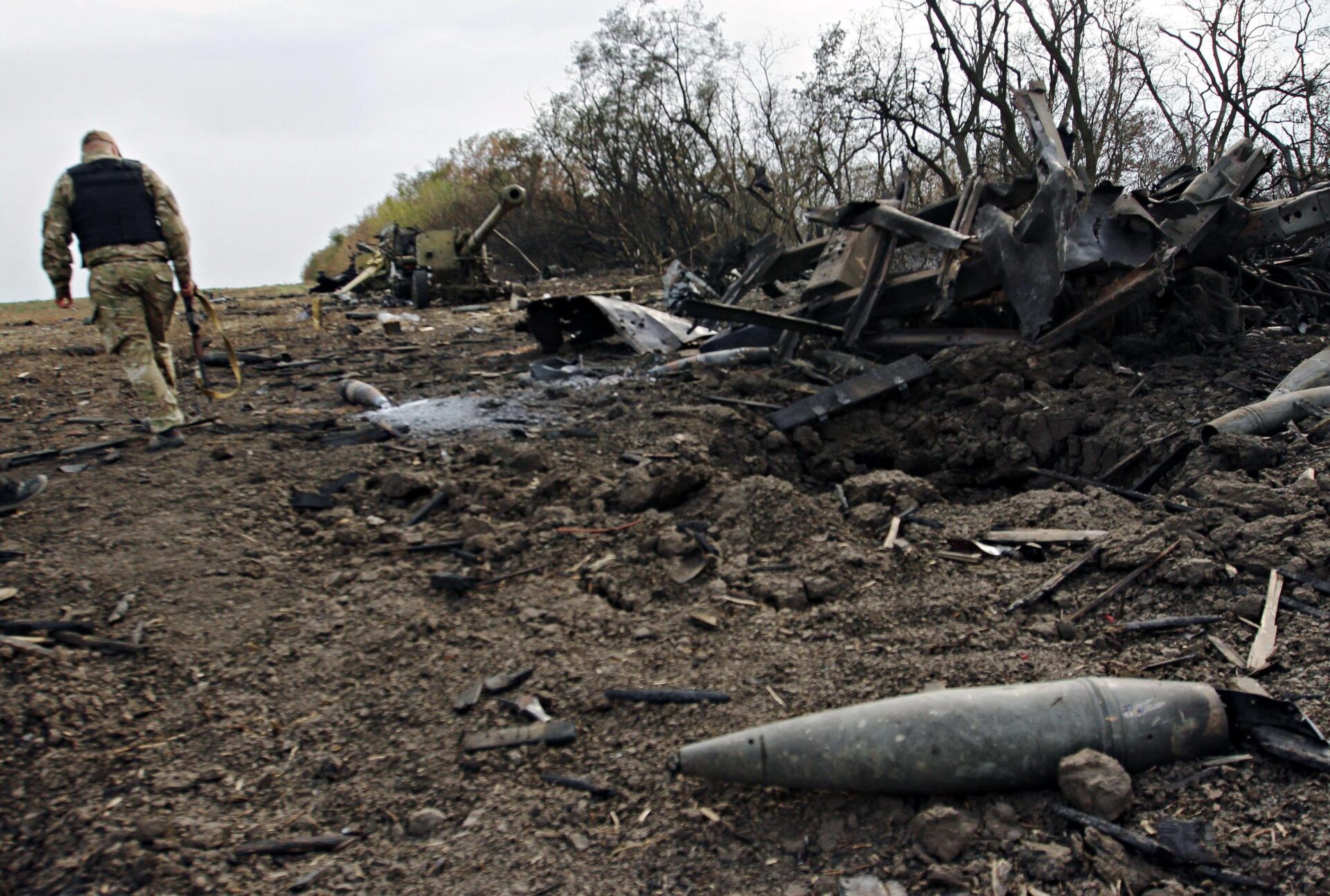Orichiv in the Zaporizhia region has been included in every report of towns shelled by the Russians since March. The record was broken on October 12. On that day, the Russians shelled the city 324 times.
“There has been a front here for eleven months. “There are planes and helicopters coming every day. S-300 rockets explode, and all those Grads, Hurricanes, and Tornadoes. About a hundred people were injured, and about 35 people died. That’s a lot for such a small town.
“Before the full-scale invasion, the Orichiv had over 14,000 inhabitants. people, and now there are about 2,000 of us. There were a total of fifty-six skyscrapers in the city, and now they are all destroyed or damaged. The same with private houses.
There is no communication, heating or electricity. Most of the road to Zaporozhye leads close to the front line and is constantly under fire. The locals laugh, although the laugh is bitter, not to drive an expensive car here.
Nevertheless, Orichiv — next to Stepnohirsk, Komyszuvachy and Hulaypol — are the cities that hold the Zaporozhye front today. At the expense of your own infrastructure.
“We had to stop the Russians.” They did it with the army Just a year ago, Orichiva, one of the historic towns of southern Ukraine, was a pretty nice old town. In the times of the Zaporozhian Sich, the border between Zaporizhia and the Tatar Steppe ran here, before the construction of the railway, the city was on the road to the Crimea, on the so-called Murawski Trail.
Today, as many inhabitants remain in the city as during the Russo-Turkish wars of the late 18th century – when the front also passed here.
Orichiv is also located on the only road through which it was possible to enter Ukrainian-controlled territory from Mariupol at the time when it was under siege.
The first refugees arrived on February 24, the first day of a full-scale invasion. They called me at night and say: “People from Mariupol are coming to us on a motorcycle! Mikhailivno, we need help!” Mandrich recalls. “It was February and they were on a motorcycle!” A young family with a three-year-old child. They had nothing because they jumped on that bike as they stood.
In that moment, Mandrycz understood that more people would be coming soon, that there would be children and old people among the refugees. The city, which today is being helped by all of Ukraine, was itself a place of help in February.
“We’ve created a place where they could warm up, eat, and get medical help. It was the first thing we did on February 25 – says the deputy mayor.
The front was fast approaching Orichiwa. The fighting took place near Melitopol, the Russians took Kherson.
“The village of Nesterianka, which is closest to our city, was already occupied on March 2, Kopani on March 3, and Myrne on March 4. Then the Russians approached the city itself, and in some places they were already within its borders. We heard shots from automatic machines and machine guns,” lists Mandrycz.
Later, the front was pushed further and now it is 11 kilometers to the nearest occupied village where the Russians are stationed.
— When we understood how fast the front was approaching us, we did everything to help our army. People built road barricades, brought sacks, made metal anti-tank “hedgehogs”, dug trenches. We had to stop the occupiers. And we stopped them together with the Armed Forces of Ukraine, with our people. We became very close during that time,” he recalls.
The villages of Kopani, Nesterianka and Myrne – the name of the latter translates as “Peaceful” – are suburbs of Orichov and part of its commune.
— In these villages, the Russians did not allow people to leave their homes for a long time, not to mention leaving. They kept them there as human shields. Some managed to leave only in September or October, now there are still about 400 people in these three villages,” says Mandrycz.
“We dream that after the victory we will build Switzerland here”
Today in Orichiwa, no one lives in their former room – the residents have settled in the basements. If laundry is drying in the yard, it means that someone is left here. It is rare to meet a person on the street, usually a new refugee from the occupied territories or someone who came to the city for water and food.
“The cellars were made for potatoes or jars, not for people to live in. They are damp, there is no light, there is no possibility of heating. It’s very cold, but people are sleeping. I also sleep in the basement. There are people whose houses are destroyed: it has arrived, an explosion and there is nothing.
Orichiwa the shelling does not stop day or night. A few months ago there were two or three hour breaks, but now it can be 12-13 hours of shelling.
“We don’t leave the cellars, because there’s simply no way out. Hundreds of missiles fly every day. And these are just the ones we manage to count, we hear as we sit in the basement. They fly from different directions and in different directions. There is no such thing as bombing only one part of the city and then the other – describes the deputy mayor.
Today, there is no medical help in the city, and no ambulance is coming. The nearest hospital is in the village of Tawriye several kilometers north of the city, and if a more serious case occurs, you have to go to Zaporozhye.
– We drive to the hospital ourselves, municipal services and the police remain in the city. Municipal services take away garbage, provide water and firewood. There is a Humanitarian Aid Center that tries to distribute food, warm clothes, stoves and firewood to people.
When asked how you can help the city, she replies:
“We need power generators because we haven’t had any light for several months. We need warm bedding, blankets, pillows, mattresses, clothes, because people mainly live in basements. And solar-powered flashlights are also needed
— Many people were evacuated to Zaporozhye. I go there and talk to them, they all want to come back. Everyone wants to rebuild. We are Ukrainians, we cannot but return to our homes. When we talk, we dream that after we win, we will build a little Switzerland in our commune. We all believe in victory, we hope to return! – the deputy does not lose his optimism.
Today, two large Russian bases are located near Orichiva. The Russians installed themselves in the cities of Poloha and Tokmak. Every day they bring equipment there and increase the staff. The Ukrainians regularly try to destroy these bases.
Everyone on both sides of the front is waiting for the great Ukrainian counter-offensive south towards the Sea of Azov. But the Russians are waiting for it with fear, and the Ukrainians with hope. It is possible that the strike will start in Orichiwa.
***
In the Humanitarian Aid Center lives a female dog known to almost all of those who stayed in the city. It’s called Peremoha, which means victory. She just saved herself. Residents who come to the Center believe that victory will soon be in their homes.




GIPHY App Key not set. Please check settings